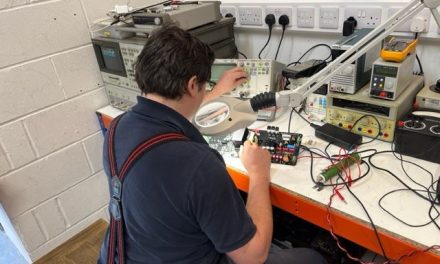Schools are reaping significant savings on fuel by switching to biomass – wood chip or wood pellet boilers – according to new evidence from one of the industry’s leading suppliers.
LC Energy, a specialist in sustainable wood fuel supply, has seen a year on year rise in the numbers of schools fitting biomass boilers across the South East, with most reporting thousands of pounds worth of savings on their heating bills. As well as developing a leading reputation for the supply of biomass wood fuel solutions – including design and feasibility, service and maintenance – LC Energy has been recognised1 for its policy of supplying wood chip and pellet fuel which is sustainably harvested and sourced locally2.
The company suggests that the rise in popularity of biomass in schools can, in part, be explained by the introduction of the Government’s Renewable Heat Incentive (RHI) 3. Introduced in 2012 to encourage uptake of renewable heat technologies among communities and businesses, the scheme provides financial incentives to eligible, non-domestic renewable heat generators for the life of the installation or up to a maximum of 20 years. Small- scale users can expect to generate at least the cost of the woodchip or wood pellet fuel each year in incentive payments, and often up to double the value. Payments are linked to the amount of renewable heat generated. Ofgem is responsible for administering the scheme and phase two, which will open the scheme to domestic applications, will launch later this year.
Mark Lebus, managing director of LC Energy, said: “As heat in schools must be available on-demand, particularly during cold spells such as the UK has experienced recently, locally sourced biomass has proved an excellent option, especially with availability of the RHI. We’ve seen a significant increase in the number of schools recognising the cost effectiveness of wood fuel energy, as well as the benefits it delivers in terms of reducing the carbon footprint4 and lessening the establishment’s reliance on fossil fuels.”
Those schools investing in the technology have also seen an educational value in opting for the renewable energy source. As the wood chip or pellets are sourced locally, the on-site biomass boiler enables the pupils to get involved in understanding the renewable energy cycle and the importance of managing resources sustainably. Julie Davies, office manager, at Marston Vale Middle School in Bedfordshire, said: “Our biomass system has proved a very cost
effective alternative to our previous oil central heating system. Estimates suggest we’ve reduced our spending on heating by £15,000 a year. Over time, we will also benefit from the Government’s Renewable Heat Incentive and this could save us an additional £15,000, annually. As well as using these savings to make investments in other areas of the school, our teachers have also gained a ready-made educational tool to help children understand the long term value of renewable energy.”Schools have the option to show pupils the journey of the wood supply, from the felling of a tree under responsible forestry management to the production of carbon-efficient energy at their school.
Mark Smith is assistant head at St James Primary School in Elstead, Surrey. The school fitted a biomass boiler in August 2010. He said: “After exploring a range of heating possibilities for the school, we opted for biomass, given its excellent sustainability profile and cost effectiveness. It was also compelling for us to select an energy option which allows us to use a locally sourced fuel supply – not only does this help to minimise our carbon footprint, but it also allows us to support industry within our local community.”
James Little, LC Energy’s Business Development Manager, said: “We took the whole tree-to-heat story to St James Primary School’s Year 6 just before Christmas, and gave a short presentation about the replanting of trees for every tree felled. They were thoroughly enthusiastic, especially as we gave each of them a Douglas fir sapling to plant at home for some competitive tree growing!”




